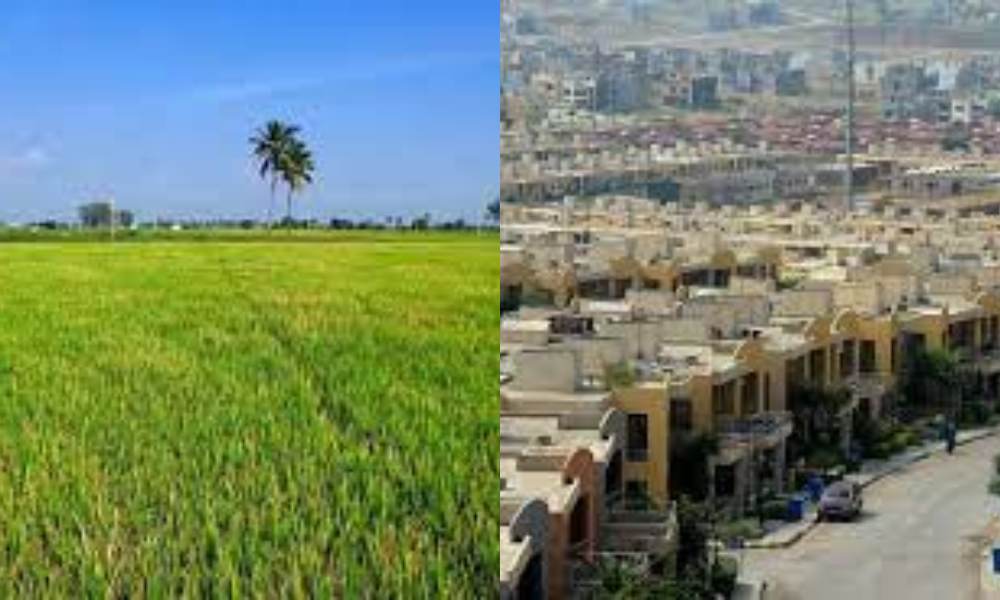- Web Desk
- 8 Hours ago

Audit report sounds alarm on conversion of Punjab’s farmland to housing
-
- Abobakar Khan Web Desk
- Mar 27, 2024

ISLAMABAD: In a recent report, the audit team has raised a red flag concerning the rapid rate at which agricultural land in Punjab is being converted into housing societies and townships, posing a severe threat to the region’s food security.
The special report, covering the period from 1990 to 2022, reveals that an astonishing 630,776 kanals of agricultural land have been converted into housing societies and townships. This alarming conversion has resulted in a significant 14 per cent decrease in overall agricultural land availability during the same timeframe.
The report sheds light on the drastic changes in Punjab’s landscape. In 1990, the region boasted 652,529 acres of land available for agriculture. However, by 2022, this number had dwindled significantly to just 573,682 acres.
Furthermore, the data reveals that a substantial 78,847 acres of agricultural land have been repurposed for housing societies and townships since 1990. Additionally, urbanization has contributed to the loss, with 19,420 acres of agricultural land converted into urban areas over the past 32 years, the report says.
A closer examination of the Geographic Information System (GIS) analysis of urban units indicates that in the last 22 years alone, 46,663 acres of agricultural land have been converted into urban areas in Kamoke, raising concerns among the local agricultural community.
Read more: PM Shehbaz inaugurates LIMS to modernise agriculture sector
The situation is particularly dire in Kamoke, where approximately 39 new housing societies have been established, covering 438 acres of agricultural land. Despite being previously utilized for farming purposes, these vast areas within the colonies remain vacant and devoid of any agricultural activity.
The report highlights a notable acceleration in the rate of agricultural land conversion to urban areas in recent years, underscoring the urgent need for intervention.
In response to these findings, the report recommends that the administration undertake thorough planning and research before approving new housing societies. It emphasizes the importance of conducting environmental impact assessments before approving such projects.
Moreover, the report advocates for the prioritization of greenery protection and the implementation of measures to mitigate rising temperatures, addressing the pressing issue of land conversion and its implications for Punjab’s agricultural landscape.






